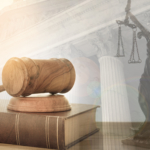Without a rich bounty program for whistleblowers and robust legal prohibitions against retaliation, it is unlikely that anyone would take the risks of reporting fraud—luckily, most whistleblower programs offer both. Clients here in Mississippi often ask me to walk them through a whistleblower claim, a process that usually begins with a description the definition of a whistleblower.
The United States Supreme Court issued a decision, Digital Reality v. Paul Somers, in February that has a dramatic effect on who qualifies as a whistleblower for the purposes of the Dodd-Frank Wall Street Reform and Consumer Protection Act of 2010. I have discussed Dodd-Frank on this blog before; it is a law passed in the wake of the 2008 financial crisis aimed at reforming the finance industry. Interested in incentivizing whistleblowing Wall Street insiders, it offers a 10% to 30% reward to whistleblowers who report fraud and broad protections against retaliation.
The issue in Digital Reality was similar to questions many of my clients bring to me, specifically, “do I qualify as a whistleblower?” Paul Somers, the plaintiff in the case, alerted his supervisors to financial fraud and was subsequently fired. Normally, this sort of clear retaliation would be prohibited against whistleblowers. The question was whether Somers qualified as a whistleblower under Dodd-Frank.
Which Definition of “Whistleblower” Applies Under Dodd-Frank?
Dodd-Frank prohibits “retaliation based on the whistleblower’s attempts to report her concerns.” Somers’ report to his supervisors would seem to fall neatly under this provision. However, Dodd-Frank goes on to state, that the prohibition against retaliation only applies to whistleblowers who:
- Provide information to the SEC,
- Who assist or testify in SEC investigations, and
- Who report (even internally) suspected violations of securities laws or regulations.
Even when the definition of “whistleblower” is further narrowed by the three categories above, it still seems like Somers’ internal report of suspected violations of securities laws should have satisfied category three.
Remember what I said earlier, that Dodd-Frank has two important parts, one pertaining to the reward program and the other pertaining to retaliation. Somers’ actions seem to meet the definition of a “whistleblower” in the above retaliation section. However, in the reward section of Dodd-Frank, the term is defined much more narrowly. Instead of three different ways to qualify as a whistleblower, it only has one. This narrow definition states that a whistleblower is a person who provides information to the SEC regarding a securities fraud violation. Somers never did that.
The question before the Supreme Court in the Digital Reality case was which definition of whistleblower should apply—the three-pronged version or the single-pronged one. The court found that the narrowest definition applied, and because Paul Somers did not report his suspicions of fraud to the SEC, he could not enjoy Dodd-Frank’s protections from retaliation.
Dangerous Precedent for All
The Digital Reality decision is bad for whistleblowers, bad for the finance industry, and bad for the SEC. The decision is clear—if you want a considerable reward, you must report fraud to the SEC, and if you do anything less, you will not have any retaliation protection. For the finance industry, this decision means that employees will now be incentivized to go the SEC to attain protections against retaliation, and the decision creates a disincentive to try to report and fix problems within a company before reporting problems externally. Because the SEC lacks the capacity to investigate every tip it gets, this decision means that a tremendous amount of fraud will go unregulated. In the end, the purpose of Dodd-Frank was to incentivize fraud whistleblowing—Mr. Somers should not be penalized for doing just that.
What Should You Do if You are Considering a Whistleblower Claim?
Do you know about fraud in the finance industry? Are you considering filing a whistleblower case?
Call Barrett Law now at (800) 707-9577 if you think you may be a whistleblower.
Experienced Mississippi Whistleblower Lawyer Barrett can provide you with the advice you will need to file a successful False Claims Act case. Having expert legal advice by your side can mean the difference between receiving your share of a whistleblower reward and losing your career and livelihood. Call us today.




